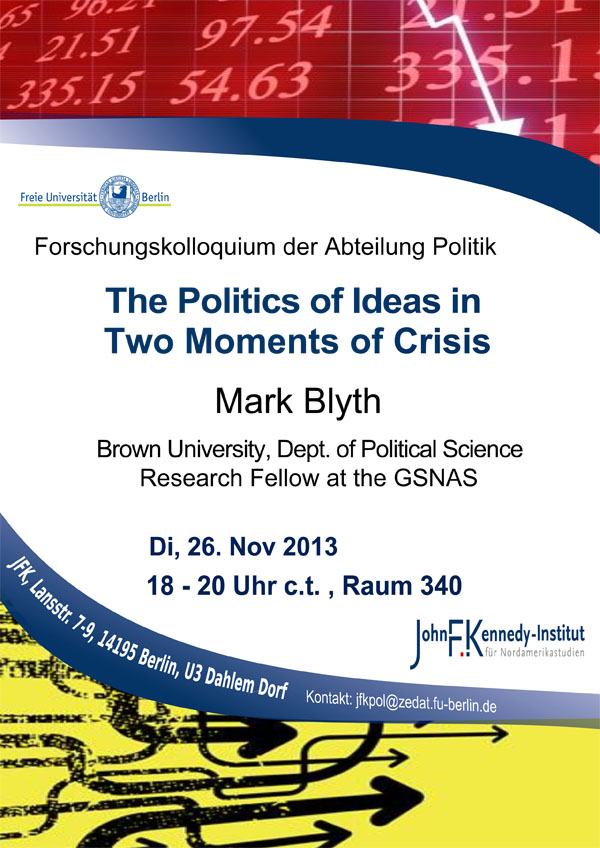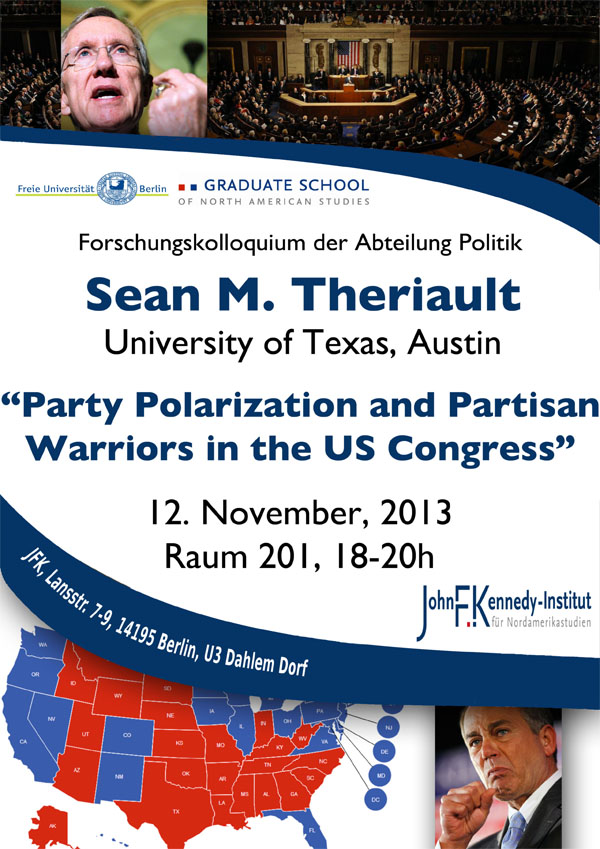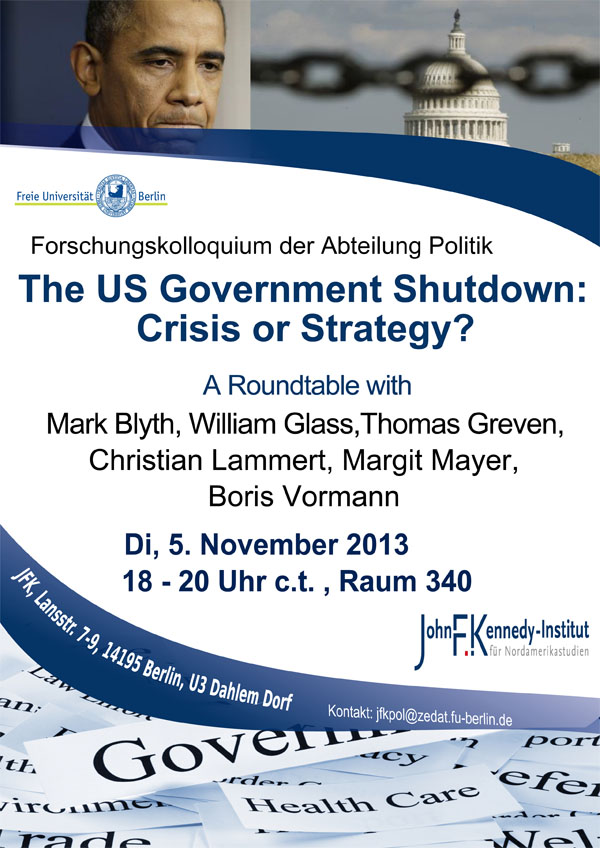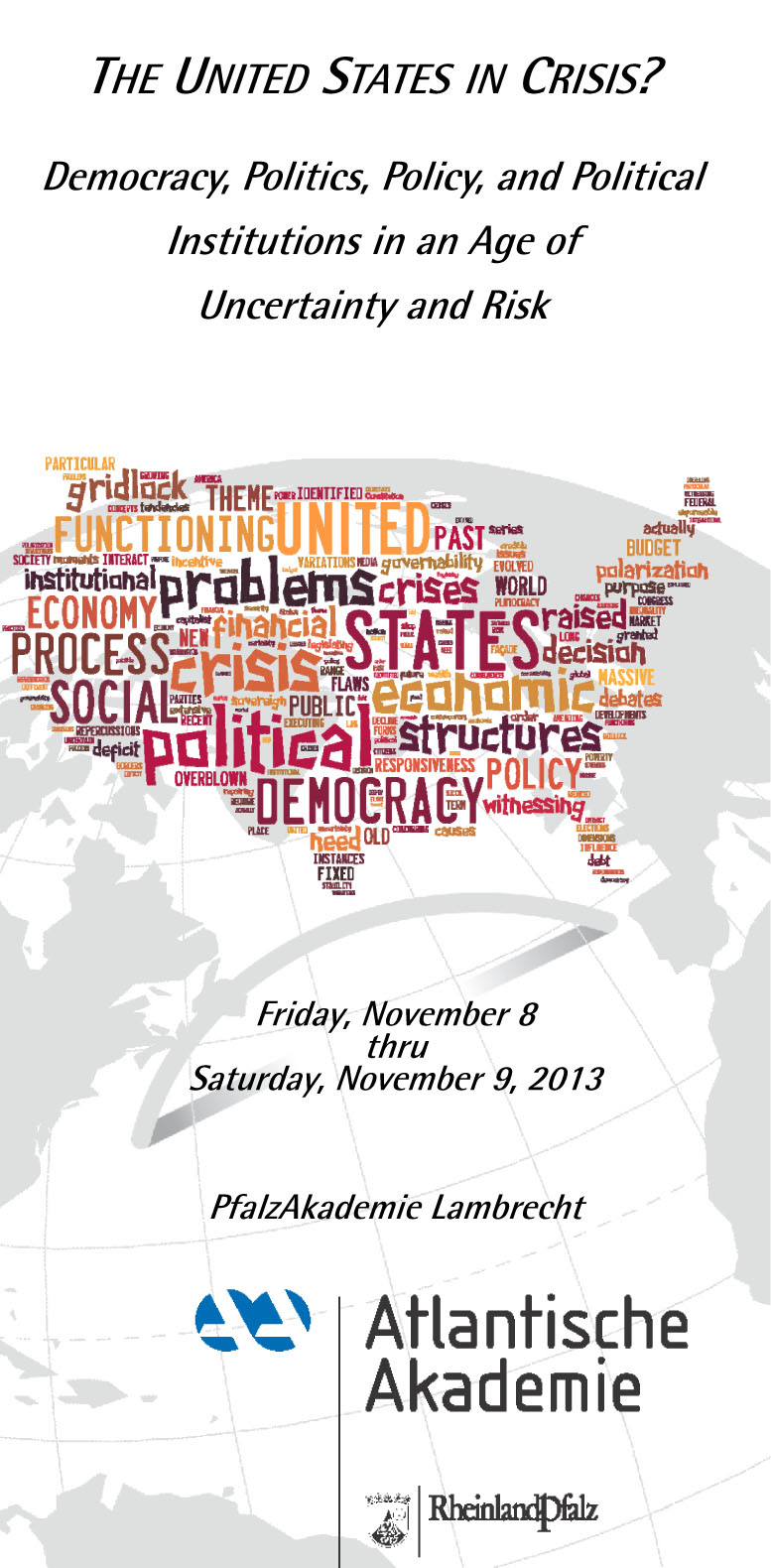Government Failure or Market Failure? The 2013 US government shutdown
After three weeks of intense public debate, only few are still speaking about the government shutdown a month later. This seems somewhat surprising, given the fact that the US Congress led the United States and, for that matter, the global economy to the brink of a renewed global recession—one, as some commentators insisted, that would have dwarfed the crisis following the fall of Lehman Brothers in 2008. The absence of a public debate is equally astonishing if we remind ourselves that the same question about raising the debt ceiling will need to be addressed again in January 2014. Why not have a somewhat less heated and perhaps more insightful debate now? Perhaps this interlude, this moment of silence in the eye of the hurricane, can serve as a basis for a more theoretical reflection. Den ganzen Beitrag lesen »
Update zum Shutdown: Ein paar Links
In meinem letzten Blogpost hatte ich argumentiert, dass es abseits der politischen Bühne, die die Massenmedien insgesamt präsentieren, klare Gewinner des Shutdowns gibt. Ihnen ist die Ideologie des kleinen Staats gemein. Mittlerweile scheint der Stillstand endlich in die letzte Runde zu gehen. Auf der Homepage der New Republic schreibt Alec MacGillis aus diesem Anlass ebenfalls über die „Gewinner“ des Shutdowns: in diesem Fall Lobbyisten, die der Tea Party in ihrem Kampf gegen jede noch so kleine Steuer zur Seite stehen:
„This outcome would serve as something of a clarifying moment for all of those pundits wondering of late why it is that the business lobby hasn’t tried harder to tamp down the Tea Party insurgency its campaign contributions have helped fuel. These pundits assume that there is a massive disconnect between the aims of the two wings of the Republican coalition, that their interests are deeply at odds. Well, no, it won’t be good for Wall Street if Ted Cruz leads us to a national credit default. But the medical device tax is just the latest example of big business doing just fine, thank you, as a result of allegedly populist uprisings on the right. The Chamber of Commerce may know what it’s doing, after all.“
Auf der Homepage von The Nation erschien derweil ein überaus informativer Artikel über die Interessengruppen, die hinter den Kulissen ihren Beitrag zur Shutdown-Krise leisten.
Zum Thema politischer „Paralleluniversen“, ideologischer Massenmedien und dem Problem des gerrymandering schrieb unlängst der Medienexperte der New York Times, David Carr, einen diskussionswürdigen Beitrag. Es seien nicht nur die Wahlbezirke, sondern auch eine fragmentierte und ideologisch gefestigte Medienlandschaft, die hier problematisch sei, so sein Argument.
Außerdem empfehle ich das folgende Video-Editorial von Bill Moyers, der seit Jahrzehnten das politische Geschehen in Washington kritisch analysiert und kommentiert (…und einer meiner persönlichen Lieblingsjournalisten ist):
https://billmoyers.com/segment/bill-moyers-essay-shutdown-showdown/
*EDIT* Editorial von The Nation zur GOP und dem Shutdown:
https://www.thenation.com/article/176694/even-when-gop-loses-it-wins







 Die
Die